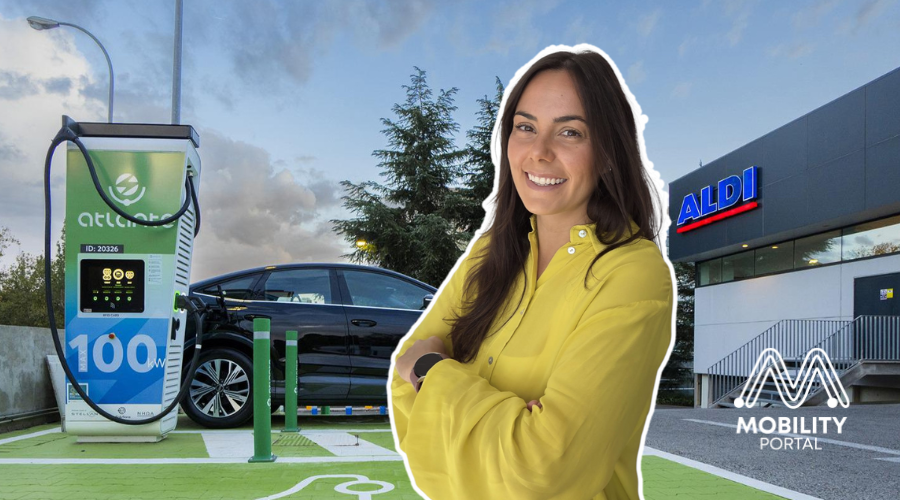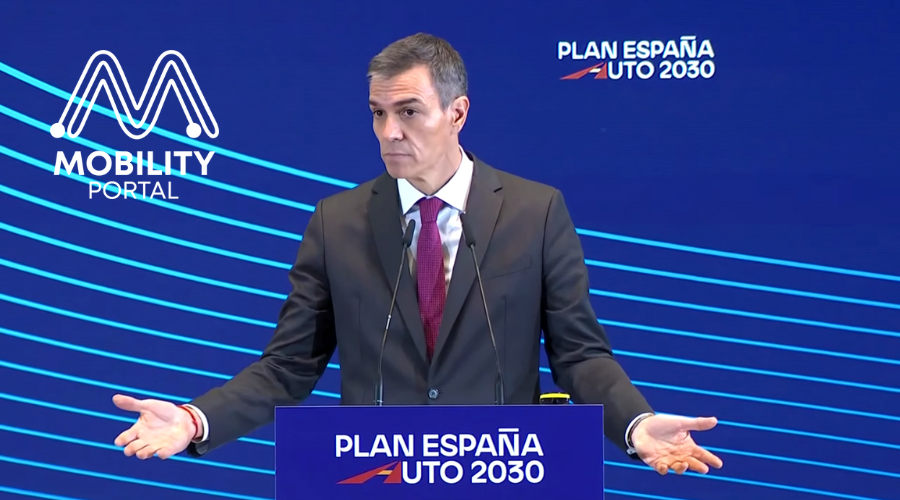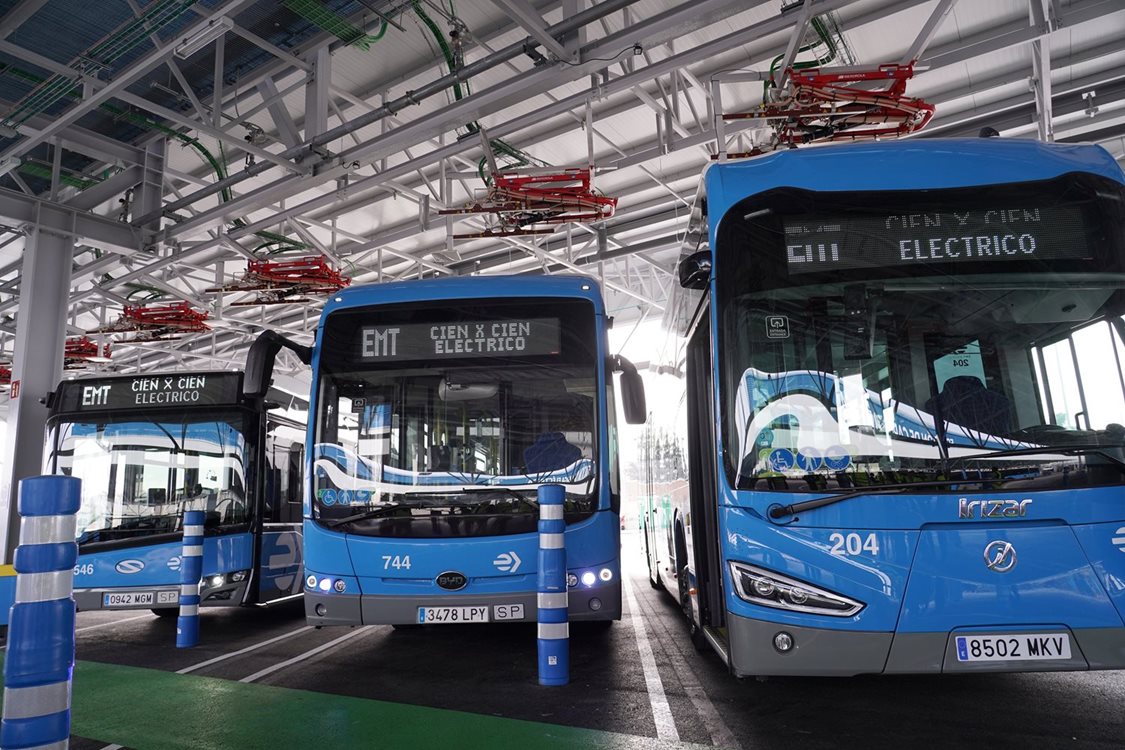INJET New Energy, “one of the world’s top five manufacturers of electric vehicle (EV) chargers,” aims to strengthen its presence in the United Kingdom (UK).
So explains Hanna Xu, UK Country Manager at INJET, during the second day of the Forum on Energy Storage, Renewables and Electric Vehicle Integration, organised by Mobility Portal Europe.
To achieve this, the China-based company has launched products that comply with UK regulations: at the end of last year, it unveiled its ultra-rapid direct current (DC) charging station, and more recently introduced its range of alternating current (AC) chargers.
The INJET Eco, available in both Eco Smart and Eco Pro+ versions, not only meets the government’s smart charging requirements, but also boasts other features that make it an appealing option for the sector.
From off-peak scheduling to the utilisation of surplus solar energy, this product enables smarter charging, helps save money, and makes the most of clean energy.
It is worth noting that its energy management system supports local home load balancing and solar power system connections, ensuring household electricity safety.
In addition, it offers secure connectivity, as it supports OCPP 1.6J and complies with safety standards.
Equipped with Wi-Fi 6, app control, and robust security features such as PEN fault detection, this smart charger is ready to be deployed in homes, by installers, and by fleet operators.
China as an Example: What Measures Should the UK Replicate?
INJET New Energy identified smart charging regulations as one of the main barriers to entering the British market.
“Having high standards is not necessarily a barrier to innovation, but if they are so strict that they hinder the commercial viability of businesses, then it becomes an obstacle,” Xu acknowledges.
“Also, if policy is not consistent and keeps changing, it becomes a hindrance,” she adds.
Xu explains that although the EV market is growing rapidly, the number of electric vehicles as a proportion of the total car fleet remains low.
“In the UK, we have 1.3 million EVs, but there are 33 million cars in total. It’s still a small share of the automotive market,” she admits.
She continues: “This means that when charge point operators (CPOs) invest in certain areas, their financial returns are sometimes poor.”
This kind of risk becomes a barrier for CPOs to adopt new technologies.
“In this scenario, the government is not supporting but rather creating obstacles. That does make innovation difficult,” the executive laments.
What actions should authorities take?
Xu highlights China as a case in point.
“The decision by the national government to invest in and support companies to develop battery electric vehicles (BEVs) was made in the year 2000. That means the authorities supported the industry for 25 years before truly positive results were seen,” she notes.
And she stresses: “I hope the UK revises some of its decisions to continue supporting EV adoption, which will also help boost the uptake of chargers.”
What Is INJET’s Secret to Success?
Founded in 1996, INJET New Energy was listed on the Shenzhen Stock Exchange’s Growth Enterprise Market (GEM) in 2020. It is also the first Chinese manufacturer of EV chargers to obtain UL certification for Level 2 chargers.
The company’s products are not only sold in China and the UK but are also exported to the United States, Germany, France, Italy, Serbia, Poland, Russia, India, Australia, and dozens of other countries and regions.
“Our strength lies in the fact that we have a vast database, as we’ve deployed numerous ultra-rapid charging stations for CPOs across the globe,” Xu acknowledges.
She continues: “This allows us to support our clients — such as CPOs and fleet operators — by offering a different perspective on the market, helping them understand how to sustain their business and improve their financial performance.”
DISCOVER MOBILITY PORTAL DATA
Discover Mobility Portal Data, a new exclusive market intelligence platform offering reliable data and key reports to support smart decision-making across the automotive sector — covering both combustion and electric vehicles, as well as charging infrastructure.
Research, trend analysis, and neatly organised statistics presented with clarity and precision, alongside up-to-date insights — all just one click away.
With Mobility Portal Data, good decisions are on the horizon.
READ MORE
-
Atlante y su “modelo híbrido”: generación, almacenamiento y recarga ultrarrápida para un sistema más resiliente
Atlante acelera su despliegue en España y en diálogo con Mobility portal, Inés Mackey, Chief of Staff de Atlante Iberia define las prioridades de la empresa y su apuesta por la interoperabilidad de la mano de Charge League.
-
Spain Auto 2030: a point-by-point look at the plan set to redefine the eMobility landscape
Spain has entered a new phase in its industrial strategy for electric mobility. The Government has unveiled Spain Auto 2030, a roadmap designed to mobilise €30 billion over the next five years, reshaping the centre of gravity of the electric vehicle market through fresh incentives, a centralised management model, targeted investment in charging infrastructure and…
-
EMT Madrid licita 120 nuevos buses eléctricos: inversión de 79,35 millones y entregas entre 2026-2027
Con esta incorporación, Madrid refuerza su estrategia de descarbonización y consolida una de las flotas eléctricas urbanas más grandes de Europa.











